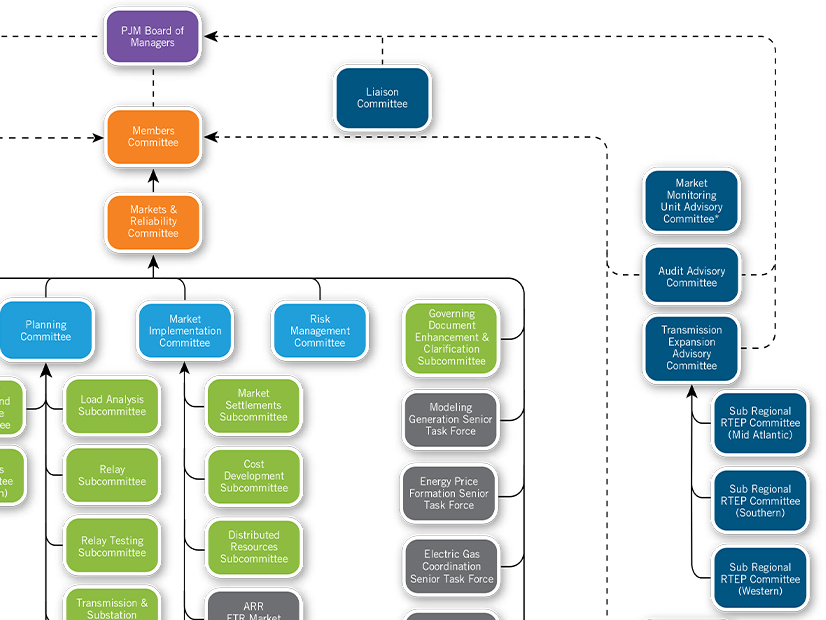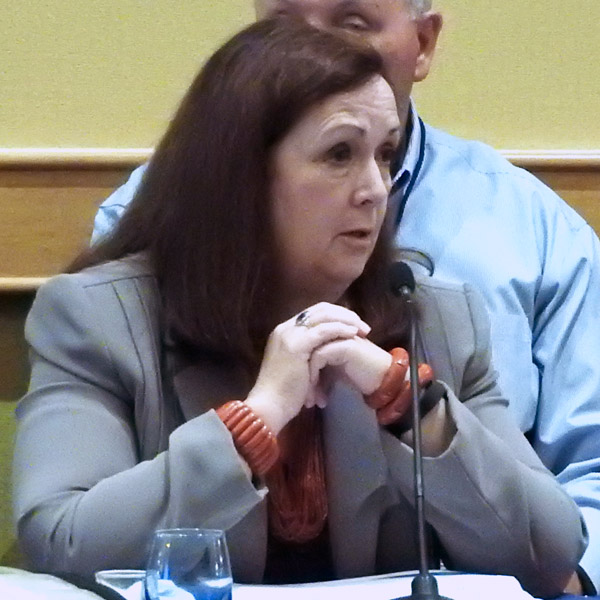
The West Virginia Public Service Commission has filed a complaint with FERC alleging that PJM is violating its tariff by not granting the PSC access to the RTO’s Member Liaison Committee (EL23-45).
“PJM’s refusal to allow the PSC access to discussions with the PJM Board that can be observed by electricity producers, transmission companies and other market participants is wrong,” PSC Chair Charlotte Lane said in a press release announcing the complaint.
“This compromises the PSC’s ability to understand the full range of underlying factors and special interests driving PJM decisions so that it can be fully armed to protect the West Virginia electric customers in grid decisions, as well as in decisions we make in regulating West Virginia electric utilities,” Lane said.
Along with other state regulators, the commission had been permitted to attend LC meetings from 2011 through 2018. But in September 2018 the Members Committee voted to enforce the LC’s charter to restrict attendance to members of the RTO and PJM’s Board of Managers, locking out state commissions, FERC staff, the Independent Market Monitor and the Organization of PJM States Inc. (OPSI). (See PJM Stakeholders Table WVa PSC Attendance at Liaison Committee.)
“We are disappointed that PJM has required the PSC to take this extraordinary step in filing a complaint to access information needed to protect West Virginia electric customers,” Lane said in the release.
 Jackie Roberts, West Virginia PSC | © RTO Insider LLC
Jackie Roberts, West Virginia PSC | © RTO Insider LLCThe PSC complains that PJM’s tariff and past FERC transparency rulings require that ex officio, nonvoting members must be allowed to observe the LC meetings and that prohibiting their attendance violates the non-discrimination provisions of the Federal Power Act sections 205 and 206. It notes that PJM continues to allow other ex officio members, namely state consumer advocates, to attend the LC given their status as voting members of PJM’s standing committees and makes the case that there is no reason to not allow state regulators as well, as the LC is not a voting committee.
After being told that it was not allowed to register for LC meetings in August 2018, the PSC attended two MC meetings in September and November 2021 to make the case for its right to attend. While a motion was made during the Nov. 17 meeting, stakeholders narrowly voted to indefinitely postpone voting on the matter.
“Indeed, the Liaison Committee Charter makes clear that the Liaison Committee does not ‘vote’ on matters, but rather exists to improve transparency between the Board and the members. There is thus no reason to distinguish between voting and non-voting ex officio members of PJM regarding their rights to attend and observe the Liaison Committee meetings,” the complaint states.
PJM spokesman Jeff Shields responded that the RTO “is fully compliant with its governing documents on this issue. Participation on the Liaison Committee is determined by members, who did not support participation by the West Virginia Public Service Commission when it was brought before the Members Committee in November 2021.”
The PSC argued that knowledge of the meeting’s proceedings is necessary to allow it to fulfill its mandate to protect consumers’ interests, since FERC-regulated utilities operating in West Virginia may participate in the meetings and have an opportunity to advocate before the PJM board for market rules that are not in the state’s interests.
“The statements made by those utilities to the PJM Board and the positions they take before the Board are matters of unique and critical interest to the PSC WV given the state regulatory commission’s obligation to oversee the actions of those West Virginia-jurisdictional utilities and the positions they take in discussions with an entity charged with overseeing the markets and transmission operations for their utility operations in West Virginia,” the PSC wrote. “Absent the right of the PSC WV to attend those meetings, it would be unable to discern what the West Virginia jurisdictional utilities were telling the PJM Board of Managers regarding issues of critical importance to regulation of utility operations in West Virginia.”
The PSC said attending the LC meetings “is critical to its ability to ensure service reliability and affordability in West Virginia, especially during the market’s transition to renewable energy resources.”

